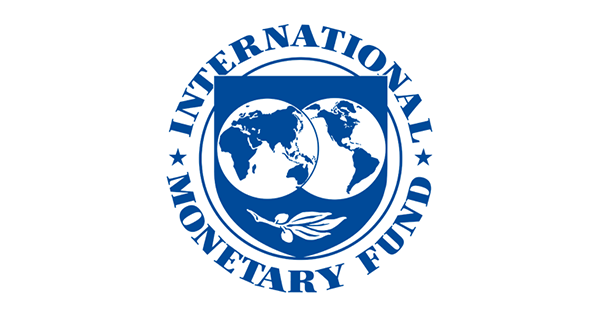IMF Executive Board Concludes the Fourth Reviews Under the Extended Fund Facility and the Resilience and Sustainability Facility with Barbados
December 18, 2024
The IMF Executive Board today concluded the fourth reviews under the Extended Fund Facility (EFF) and the Resilience and Sustainability Facility (RSF) with Barbados, allowing for an immediate disbursement equivalent to about US$19 million under the EFF and about US$37 million under the RSF.
Barbados’ economic growth has remained robust in 2024 driven by strong tourism, business services, and construction. Inflation has moderated and the external position has continued to strengthen, while the public debt-to-GDP ratio has continued to decline.
Implementation of the home-grown Barbados Economic Recovery and Transformation (BERT 2022) plan and the ambitious climate policy agenda continues to be strong.
Washington, DC: The Executive Board of the International Monetary Fund (IMF) concluded today the Fourth Reviews of the Extended Fund Facility (EFF) and the Resilience and Sustainability Facility (RSF) arrangements with Barbados. The conclusion of the reviews allows the authorities to draw the equivalent of SDR 14.175 million (about US$19 million) under the EFF and SDR 28.35 million (about US$37 million) under the RSF. This brings total disbursements under the EFF to SDR 70.875 million (about US$93 million) and SDR 113.4 million (about US$149 million) under the RSF.
The government is continuing to implement its home-grown Barbados Economic Recovery and Transformation (BERT 2022) plan and ambitious climate policy agenda, supported by the IMF under the EFF and RSF arrangements. The BERT 2022 plan aims to achieve more inclusive and sustainable growth, while maintaining fiscal and debt sustainability and building resilience to climate change. The plan places renewed focus on structural reforms, aimed at promoting investment to accelerate the green transition, boost inclusive growth, and enhance competitiveness.
The Barbadian economy expanded by 3.9 percent year-on-year between January and September 2024, driven by tourism, business services and construction. In this context, labor market conditions improved, with unemployment in the first half of the year falling to its lowest level since 2008. Inflation continued moderating due to easing global commodity prices and lower domestic service prices. The external position strengthened further, with the current account deficit narrowing to 5 percent of GDP through September 2024 and international reserves reaching US$1.6 billion (equivalent to over 7 months of imports), continuing to support the exchange rate peg. While Hurricane Beryl caused significant damage to the fishing sector and some coastal infrastructure, the macroeconomic impact is expected to be relatively moderate, in part due to its occurrence during the off-peak tourist season.
All quantitative performance criteria and indicative targets set for the fourth review of the EFF were met. The authorities comfortably met the primary fiscal surplus target for the first half of FY2024/25 and are on course to meet the end-year target of 3.8 percent of revised GDP. Public debt declined to around 105 percent of GDP at end-September 2024 and the authorities remain committed to meeting the debt target of 60 percent of GDP by 2035/36. All structural benchmarks for the fourth review were met and the two RSF reform measures were implemented, supporting the government’s climate policy agenda.
Following the Executive Board discussion on Barbados, Mr. Bo Li, Deputy Managing Director and Acting Chair, issued the following statement:
The implementation of Barbados’ homegrown Economic Recovery and Transformation (BERT) program and its ambitious climate policy agenda remains strong, supported by the Extended Fund Facility (EFF) and the Resilience and Sustainability Facility (RSF) arrangement.
The Barbadian economy has grown robustly, driven by tourism and related activities, and construction. Unemployment has fallen and inflation has moderated due to easing global commodity prices and lower domestic service prices. The external position has strengthened, with the narrowing current account deficit and rising international reserves. Fiscal performance has been strong and, although still high, public debt continues to decline. While the outlook is positive, Barbados remains vulnerable to global shocks, climate change, and natural disasters, as demonstrated by Hurricane Beryl.
Important progress is being made on fiscal reforms, including to strengthen revenue administration, improve public financial management, and enhance public investment and procurement. These measures are critical to preserve fiscal sustainability and create space for public investment. Efforts are also ongoing to achieve more inclusive and sustainable growth, with a focus on strengthening the business environment, mobilizing domestic savings, and investing in skills and education.
The exchange rate peg remains a key anchor for macroeconomic stability, supported by ample international reserves. The authorities are working to enhance the monetary policy framework and strengthen financial resilience. Following Barbados’ removal from the FATF grey list, maintaining momentum to further strengthen the AML/CFT framework, remains important.
The authorities are advancing their ambitious climate policy agenda. A new Electricity Supply Bill has been tabled to enhance competition in the electricity market and encourage local participation in renewable energy investment. In addition, the Central Bank of Barbados has adopted a strategy for building its capacity to monitor and assess climate change risks, to help safeguard financial stability and economic resilience.
The authorities are successfully mobilizing climate financing, supported by international development partners. The recent debt-for-climate conversion is an important innovation, which will generate savings for upfront green investment to enhance Barbados’ water supply and resilience, support environmental sustainability, and boost food security.
IMF Communications Department
MEDIA RELATIONS
PRESS OFFICER: Meera Louis
Phone: +1 202 623-7100Email: MEDIA@IMF.org
@IMFSpokesperson
Source link : http://www.bing.com/news/apiclick.aspx?ref=FexRss&aid=&tid=676353fa59f941ee81dbbf1b6d73dfff&url=https%3A%2F%2Fwww.imf.org%2Fen%2FNews%2FArticles%2F2024%2F12%2F18%2Fpr-24488-barbados-imf-concludes-the-4th-reviews-under-eff-and-rsf&c=5562949232440903485&mkt=en-us
Author :
Publish date : 2024-12-18 09:32:00
Copyright for syndicated content belongs to the linked Source.
